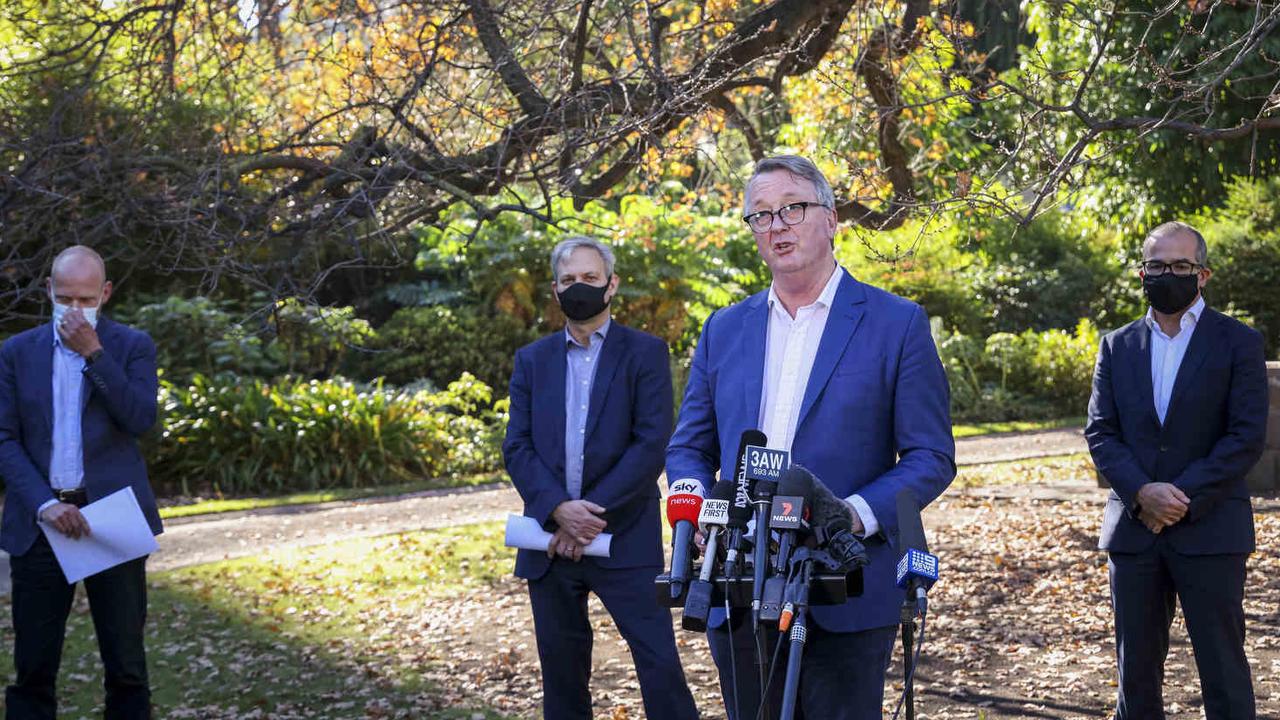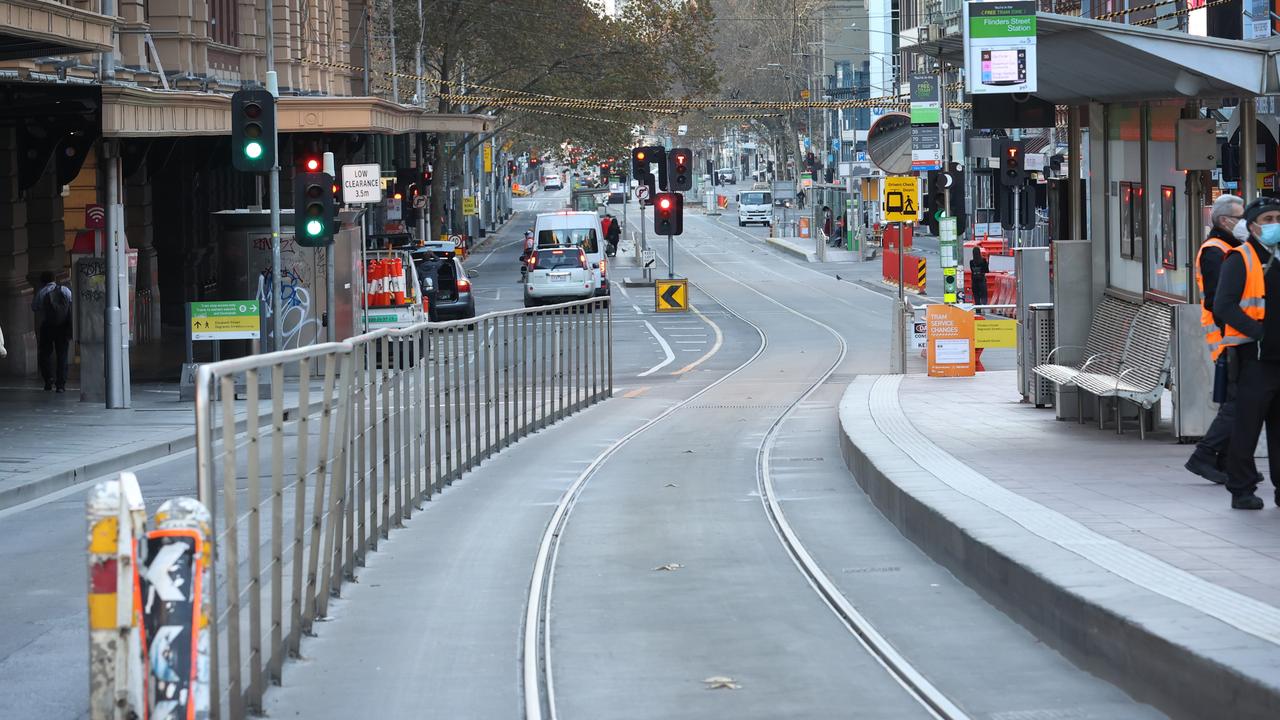Indian Covid variant spread: How scary ‘fleeting’ virus really is in Melbourne
“Fleeting”, stranger-to-stranger transmission has been fuelling fears over Victoria’s latest Covid outbreak — but is this strain as contagious as we’ve been told?
Experts have hosed down fearmongering over the strength of the Covid-19 strain that has shut down Melbourne, as authorities maintain it is “more contagious”.
Chief health officer Professor Brett Sutton was forced on Wednesday to defend his description of the Indian strain as a “beast”, after epidemiologists claimed his and other officials’ confronting language was overplaying the severity of the current outbreak.
Government officials had raised concerns that the virus was being transmitted between strangers during “fleeting” contact, including passing each other in shops.
But Deakin University epidemiology chairwoman Professor Catherine Bennett said some of transmissions used as examples, including in a Telstra shop and a Mickelham display home, should not be defined as fleeting.

“These people were in proximity of one another. All of these sites with so-called fleeting exposures were all Tier 1 sites,” Prof Bennett said.
“You don’t go into the Telstra shop to buy a phone in 30 seconds. Going into a display home is like visiting someone’s home.”
Australian National University infectious diseases expert Professor Peter Collignon said the Indian strain was not “behaving” in a drastically different way.
“In retrospect, they should have used different language that doesn’t provoke a level of fear that is higher than justified by the data at the time,” he said.
“We have been through this before; this virus is not behaving in an unexpected or much more infectious way than what we have seen before.
He added: “If it was as infectious as the language was making it out to be, with the high number of testing, there’d be more unlinked cases, which we are not seeing.”
All 60 cases in the current Victorian outbreak involve the Indian B1617.1 strain, known as the Kappa variant.

While Prof Sutton conceded the Kappa variant was not as infectious as the related Delta Indian variant, he stood by his description of the strain as “a beast” presenting a greater risk than anything the state had faced in 2020.
One of the latest cases confirmed on Tuesday came after an infected person from Stratton Finance dined outdoors in a well-ventilated area of the Brighton Beach Hotel, but still managed to infect a person eating at another table.
Prof Sutton said it was suspected another case became infected when they walked into an enclosed indoor space two hours after a Covid-positive person had left, raising the prospect
the Kappa variant was becoming as infectious as measles.

“This variant of concern is starting to show up in places where normally it would’ve been less likely,” Prof Sutton said. “That’s not something that we routinely see, and we didn’t routinely see it in 2020.
“At least one in 10 current cases have caught this virus in those casual contact settings, so not the workplace and home or close-contact settings where we know and expect transmission to occur.
“It is a more concerning, more contagious, variant. It doesn’t do magical things, but it is fair to say we are seeing transmission through those fleeting exchanges and maybe where infectious cases left the space and another person has moved into it.”
The increased ease of transmission has now resulted in Covid-19 being detected in Tier 2 and Tier 3 exposure sites, prompting health authorities to re-examine who needs to be placed in quarantine as well as resorting to a general lockdown rather than relying solely on contact tracing.
A report by the European Centre for Disease Prevention and Control, which answers to the World Health Organisation, listed Delta as a variant of concern and Kappa only a variant of interest. Variants of concern show evidence of increased transmissibility, more severe disease and reduced effectiveness of treatments or vaccines, whereas variants of interest may not offer enough evidence to suggest the same.




